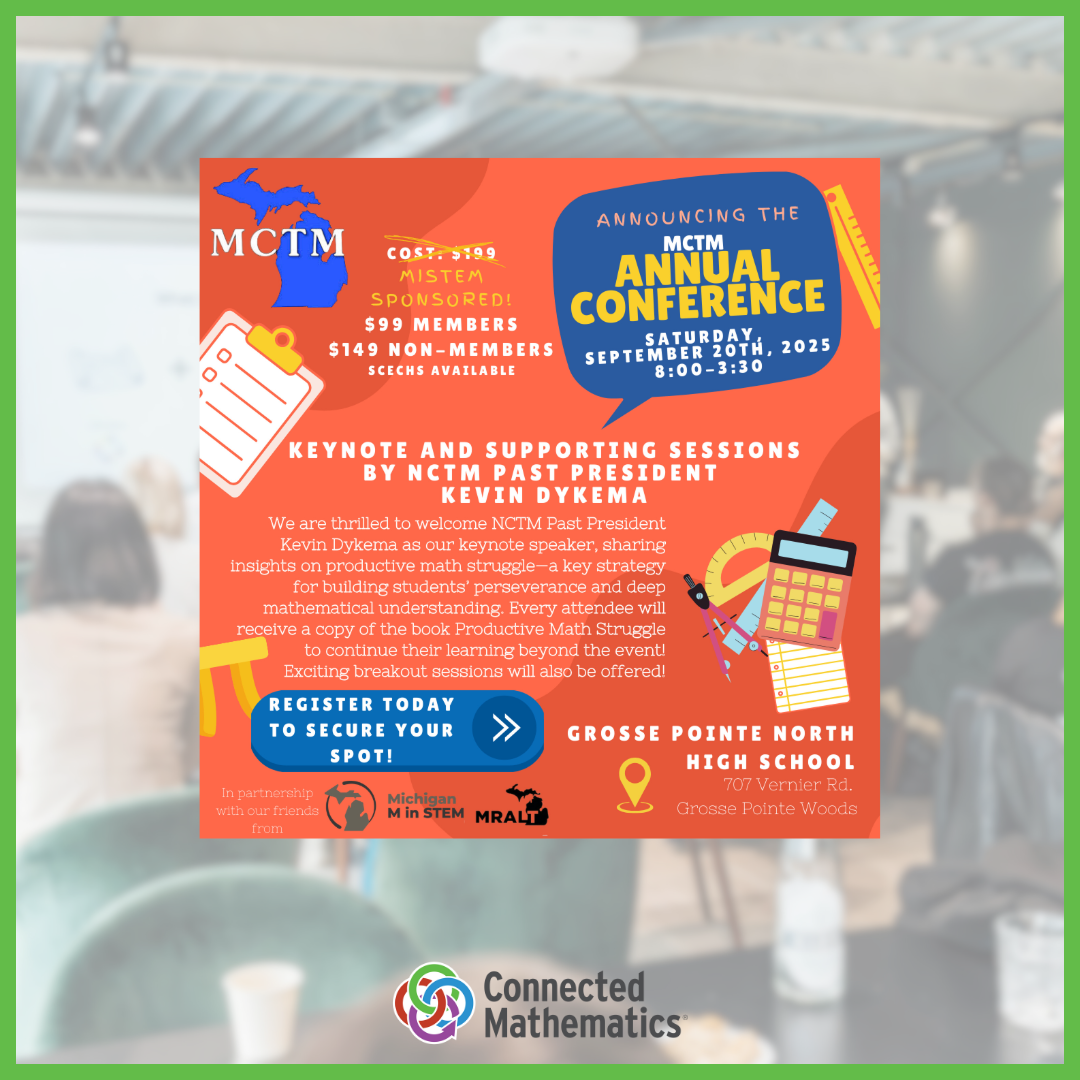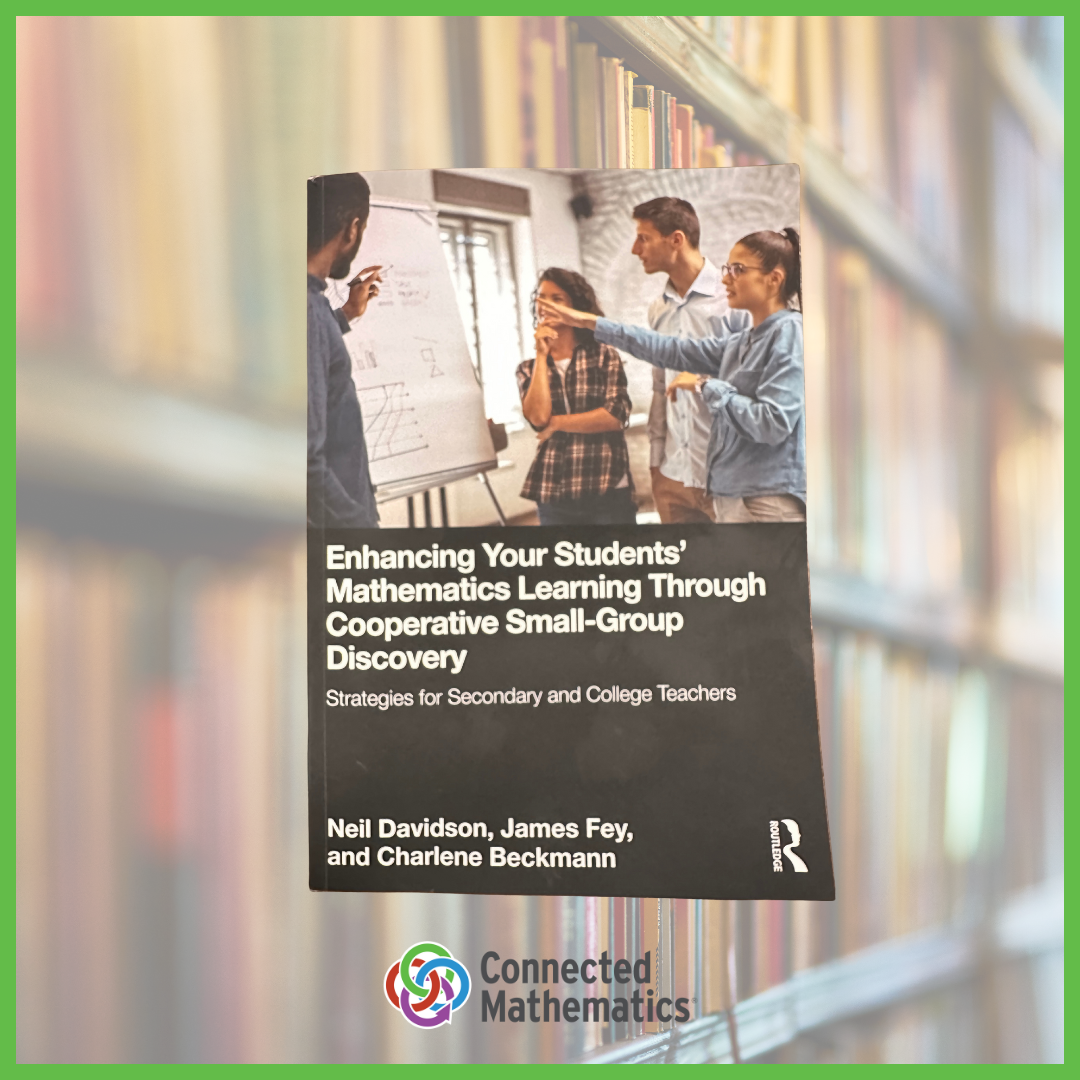Update on CMP4
Continuing the tradition of thirty years of continuous research and development, some units with new features were field-tested in several states. We greatly appreciate the teachers who tested and provided feedback to help us improve the curriculum particularly during the year of chaos created by the pandemic. An expanded field-testing of Connected Mathematics4 (CMP4) with all of the units, student books, teacher guides, and assessment will begin in Fall 2021.
For the 2021-2022 school year, we have over 250 teachers interested in participating in field-testing from 14 states and 3 countries. Teachers and schools were selected and notified on June 1. These sites provide a diversity of populations to help thoroughly test and provide feedback for the next version of CMP curriculum.
new features and updates for CMP4
Some new student edition features
- New CMP STEM Problem Format: Initial Challenge, What If…?, and Now What Do You Know?
- New features and format promote students as doers, knowers, creators, and communicators of mathematics
- More examples of student thinking as context for promoting student learning
- New and refreshed contexts for students to understand the world and use mathematics to solve problems
- More problems with embedded card sorts, models, matching, games, and experiments
- Overarching questions that guide the mathematical development in the unit
- More opportunities to attend to individual needs
- Decrease in the number of problems by 17-20%. Each Unit has 3-4 Investigations. Each Investigation has 2-4 problems.
some new teacher guide features
- New Arc of Learning highlights the development of mathematical understanding for each unit that evolves from informal knowledge to more sophisticated reasoning over time
- Additional support for Launch-Explore-Summarize (LES) phases of instruction
- Alignments between goals, standards, and emerging mathematical understandings
- New Attending to Individual Learning Needs Framework with embedded supports in LES for diverse learners and language development
- New Mathematics Overviews focus on mathematical development of a Unit
- Descriptions of mathematics themes within each grade level and strands across the grades
- More explicit answers to mathematics problems that attend to various student strategies and understandings
some new assessment features
- New Formative Assessment Framework emphasizes how formative assessment is ongoing during planning, teaching, and reflecting
- Explicit connections to problem learning goals and emerging student understandings
- Updated checkups, partner quizzes, and tests



